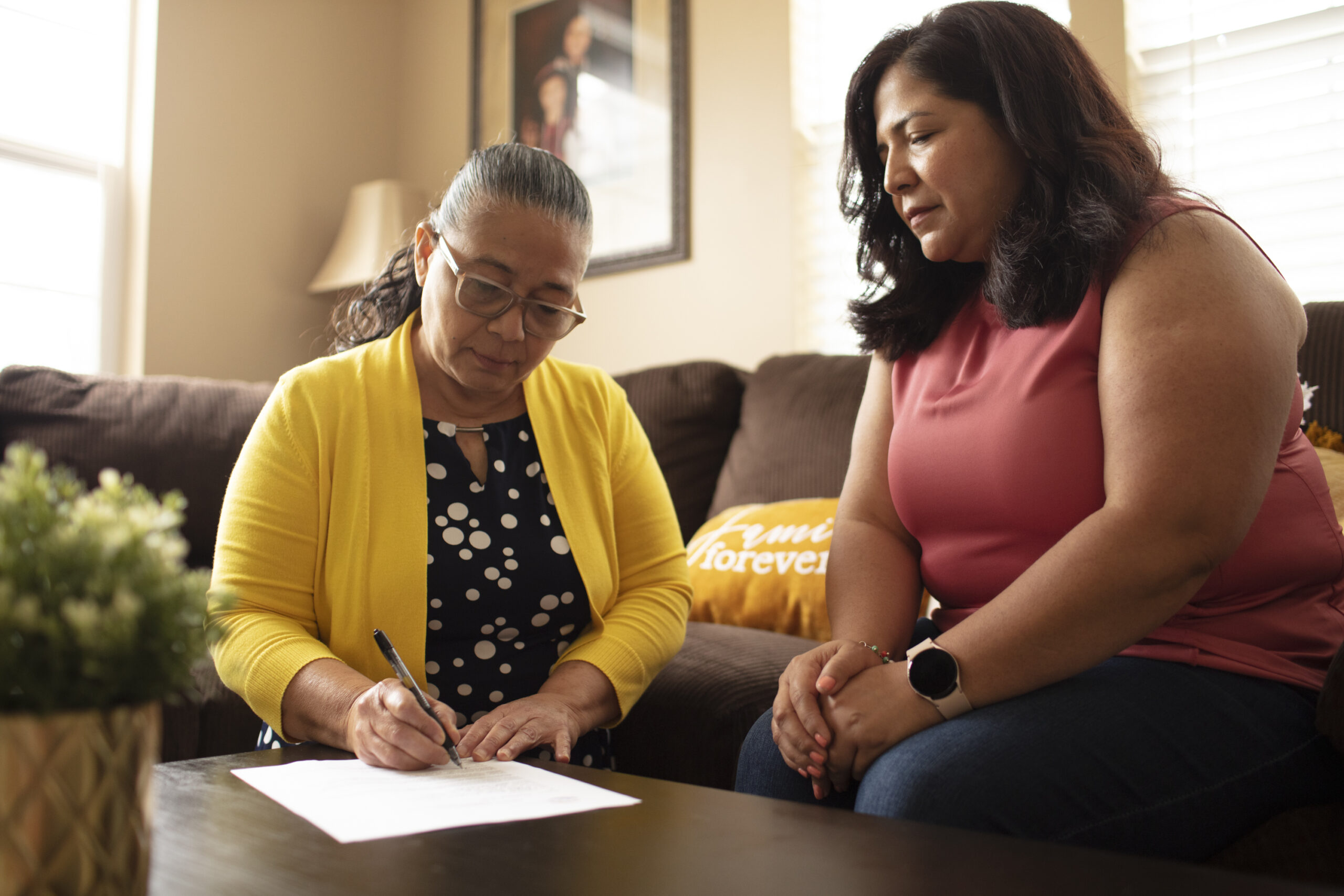The Value of Partnership: Celebrating Progress in the Movement for Health Justice, Year in Review
From the start, Community Catalyst has understood the critical role and value of partnership. We strongly believe that it is only by working and building power together that we can make deep and lasting health system change that responds to all communities.
There is no question that we have a very long way to go as a result of deeply rooted opposition to justice. But there is also something beautiful and powerful about the moment we are in — as individuals and as a collective — as we work to shift the balance of power and shine a bright light on the ways that racism, classism and other forms of oppression within our health system hurt people.

Opposition to more affordable and comprehensive health coverage, inclusive of reproductive freedom and gender-affirming care. Opposition to the creation of a health system that benefits those who are most excluded from our current one, including Asian, Black, Indigenous, Latinx, Pacific Islander communities, as well as LGBTQ+ people, older adults, women, immigrants, and people with disabilities. Opposition to the idea that a system that centers the people most harmed today is essential to a world where we are all more healthy, more free.
Gwendolyn Brooks wrote a poem called “Speech to the Young: Speech to the Progress-Toward.” It ends on a note that resonates in this long moment, a note that I think reflects what it means to build power together. She wrote: “Live not for Battles Won. Live not for The-End-of-the-Song. Live in the along.”
Living in the along — I can’t think of a better way to describe how Community Catalyst, alongside our growing network of more than 300 partners across 45 states, come together in the face of attacks on our rights and freedoms and on our vision for justice. How we come together
to hold true to that collective vision and our shared values, and how we push forward for progress, progress toward a health system rooted in race equity and health justice.
The continuous attacks against a health system rooted in race equity and health justice aren’t just about denying people’s rights, our access to quality care, our health and well-being. They’re designed to make people turn away from the belief that things can be much better, that it is entirely realistic that we can change our systems, that we can change our society.
Living in the along means holding steadfast, together, to our belief that big changes are possible.
It means holding space for sadness and grief, shoring up one another, inspiring each other, plotting together and — through it all, building power for health justice. It also means celebrating our progress. And we have much to celebrate.
And as 2023 comes to an end, we should take a step back and appreciate the fact that we won some important victories this year.
- Because of our work together this year, the Biden administration is taking action to prevent all medical debt from impacting credit scores, because nobody should lose their house or a job simply because they got sick.
- The Biden administration is also taking important steps to address the gaps and inconsistencies in dental coverage, because nobody with insurance should be underinsured.
- More than 650,000 people have a pathway to more affordable health care because North Carolina and South Dakota expanded Medicaid in 2023.
- Texas, Mississippi, Wyoming and South Dakota have joined a growing list of states that have expanded Medicaid postpartum coverage from just 60 days to 12 months.
- Dental therapists are now authorized in 13 states — most recently in Washington state — ensuring more equitable oral health.
Moments like these demonstrate the impact of power building among a broad coalition of partners and laddering our strategies together across local, state and national policy.
These aren’t abstract victories. They came about because of our collective actions and they will get millions of people across the country what they deserve.
For example, take the Biden administration’s actions on medical debt, a major focus of our work this year.
Medical debt impacts more than 100 million people in the United States, including those with health insurance. But it does not impact everyone the same. Because of racism, classism and other forms of oppression, people with low-incomes as well as Black and Latinx communities bear the brunt of the health and economic costs medical debt incurs.

In September, Community Catalyst, partner organizations and storytellers convened a roundtable in Washington, D.C. to talk directly to administration officials and members of Congress. Advocates and storytellers talked about the impact of medical debt and why policy action at the federal level is needed. Storytellers from Georgia, Colorado, Illinois, Pennsylvania, Florida, Wisconsin and Ohio shared their experiences and tied those experiences to specific actions they hoped the Biden administration would take. They discussed how their outstanding medical bills have impacted their credit scores. They are among the thousands who have shared their stories — in the media, through petitions and at events — to keep this issue at the forefront of the struggle for health equity.
- Misty, Colorado: At age 23, Grand Junction resident Misty Castaneda underwent life-saving heart surgery, leaving her with $200,000 in medical bills and unable to divorce her abusive partner. Because medical debt had destroyed her credit score, Misty could not get housing, a car, or a credit card on her own, forcing her to stay in an abusive relationship for 20 years. Misty studied and got her license to be an insurance provider, but she could not get a job because prospective employers checked her credit as part of the hiring process.
- Alyssia, Georgia: Alyssia had to pay for a lot of care with credit cards. She struggled to pay it off and had debt in collections — waiting for the collections to come off her credit report has really hurt her finances.
- Samuel, Ohio: In 2021, Samuel was diagnosed with kidney stones that required emergency surgery. Samuel’s original medical bill was $25,000, which was an error and was actually meant to be $6,000. No one from the hospital or his insurance discussed any payment assistance options with him. He wasn’t able to keep up with the bills and his debt was transferred to a third-party collections agency. To date, Samuel is still paying off this debt and his credit continues to suffer.
The administration’s action to ban medical debt from credit scores was announced just after this roundtable — an action that was spurred by Misty, Alyssia, Samuel and so many others. Their voices, and thousands like them, have helped make a difference for millions.
The same is true when it comes to the administration’s action on Essential Health Benefits. Impacted people from all over the country organized, spoke up and made a difference. Among them:
- Carol, Wyoming “My dentist’s office threatened to have me arrested & jailed when I had trouble paying the bill for a tooth extraction that turned into urgent dental surgery. The dental receptionist demanded cash on the spot. I wound up not paying my other bills to get out from under the dental bill. This is NOT how I expected my life in retirement to be!”
- Crystal, Arizona: “I stopped going to the dentist because my insurance only covered a small fraction of the cost. Now I’m losing my teeth and feel helpless because people who lose nine of their teeth are more likely to suffer a heart attack or stroke. We NEED dental coverage NOW!”
- Joseph, Michigan “I have been denied preventive care from dentists who would not accept Medicaid, and this led to dental problems becoming worse and more expensive. We need to make sure everyone gets the preventative care they need and this will mean we spend less money on dental problems in the long term.”
We are filled in so many ways by the many people who are a part of this movement, who share their stories as an expression of power and the belief that things can change. We are so grateful for our many collaborations, our shared successes and what we learn together when things don’t go our way. Each project, each campaign, each meeting, each call — we embrace that it is all an opportunity to build together.
In the new year, Community Catalyst is committed to keep building together — to keep living in the along.
Join the movement for health justice by getting involved in our work.
Together, we’re building a more powerful and united movement for health justice — so that all people have what they want and need to be healthy.
This blog was originally published on Medium.